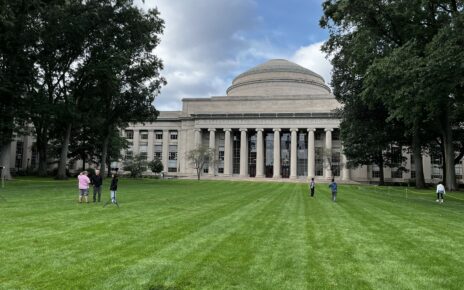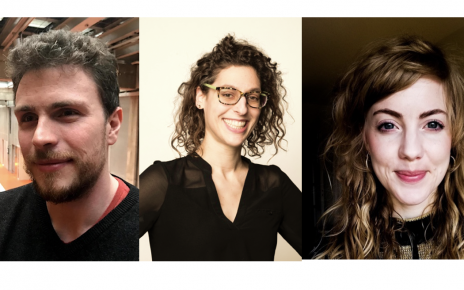Academic year: 2023-24
Study mode: Postgraduate research
Application closing date: rolling
Subject Areas: Biological Sciences (Bioinformatics; Biotechnology) Computer Science (Data Science; Machine Learning), Creative Arts & Design (Music Technology), Engineering (Bioengineering; Biomedical Engineering; Electrical Engineering), Mathematics (Computational Mathematics; Data Analysis; Mathematical Modeling), Medicine (Cardiology)
Funding Type: Tuition fee. Stipend. Bench Fees / Research Training & Support Grant
Country: United Kingdom
3.5yrs of funding to support fees and stipend and standard travel/computing support
Details at FindAPhD https://www.findaphd.com/phds/project/digital-music-therapeutics-for-precision-cardiovascular-medicine/?p153116
Award details
About the Project
This research project, supervised by Prof Elaine Chew, Prof Phil Chowiencyzk, and Prof Pier Lambiase, focuses on developing individualised, explanatory computational models for modulating autonomic responses through music that can be used in digital therapeutics for cardiovascular health, with focus on treatments for raised blood pressure. The scientific approach will be based on studying the interactions between musical prosody (acoustic variations introduced in musical communication) and autonomic parameters such as heart rate, heart rate variability, respiration, and blood pressure. A goal will be to identify the phenotypes, like having a high sympathetic drive, that are more responsive to music interventions.
Cardiovascular disease is the number one cause of death worldwide, and hypertension is the foremost risk factor for cardiovascular disease. Amongst people with raised blood pressure, hypertensive heart disease is the primary cause of death, frequently manifest as atrial fibrillation (a cardiac arrhythmia linked to catastrophic stroke), heart attacks, and heart failure. Pharmacological treatments for high blood pressure work well, but drug compliance is poor due to unpleasant side effects, including arrhythmias.
Music intervention offers a non-invasive, non-pharmacological, and pleasurable way to modulate blood pressure, heart rate, and heart rate variability. However, the links between expressive music structures (the shape of music as it is delivered to listeners) and physiological response are not well understood. Leveraging advances in wearable devices and extensions of music representations to prosodic features, this project aims to bridge the gap between music expressivity and autonomic response. An objective will be to build personalised computational models of music response based on physiological feedback for precision music medicine. A goal will be to find underlying traits that make a person more responsive to music intervention.
The research activities will include literature review, study design, ethics application, data collection, data processing, computational modelling, and analysis, evaluation, and interpretation of results, disseminating results through publications and conference presentations. The student will liaise regularly with the supervision team to discuss research progress, and for guidance and feedback.
The research activities will be carried out in partnership with the ongoing European Research Council project COSMOS, Computational Shaping and Modeling of Musical Structures (https://cosmos.isd.kcl.ac.uk/), and its accompanying Proof of Concept project HeartFM, Maximizing the Therapeutic Potential of Music through Tailored Therapy with Physiological Feedback in Cardiovascular Disease).
Requirements
– The candidate should have an undergraduate major in biomedical engineering, computational sciences, music technology, music psychology, or a related discipline.
– Experience in computational or statistical analysis of biosignals and/or music signals or industrial experience is desirable; alternatively, an MSc in a related topic is preferred.
Application Procedure
To be considered for the position candidates must apply via King’s Apply online application system. Details are available at: https://www.kcl.ac.uk/engineering/postgraduate/research-degrees
The selection process will involve a pre-selection on documents, if selected this will be followed by an invitation to an interview. If successful at the interview, an offer will be provided in due time. https://www.kcl.ac.uk/study/postgraduate-research/how-to-apply
When Applying
– mention Elaine Chew as intended supervisor (part of application form on admissions portal)
– as this is an advertised position, a research proposal is not required
– under Funding, select:
[ ] 5. I am applying for a funding award or scholarship administered by King’s College London
Code: “Engineering PhD Studentship”
Funding Notes
Funding is available for 3.5 years and covers tuition fees and a tax-free stipend of approximately £19,668 p.a. with possible inflationary increases after the first year. The student is expected to contribute to the delivery of teaching and assessment in the Department of Engineering. The studentship includes the Department’s standard conference travel support, a computer, and consumables.




